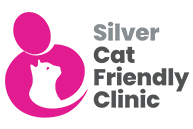We've been contacted today by a local practice in Guildford who have sadly seen three cases of Parvo Virus Enteritis (diarrhoea) in dogs in the last 24 hours. Even with prompt veterinary treatment this disease can be fatal.
Parvovirus enteritis is a serious viral infection of the gastrointestinal tract of young dogs. The virus attacks the cells of the gut resulting in vomiting and profuse diarrhoea. Parvovirus also suppresses the immune system and causes a profound decrease in the white blood cell numbers circulating in the blood.
The management of parvoviral enteritis includes intravenous fluids and supportive treatment.
What is parvovirus?
Parvovirus is a small virus that attacks young dogs and infects their intestine. It destroys the cells that line the intestinal lumen and causes vomiting and very severe diarrhoea that is often bloody. Large numbers of virus particles are shed in the faeces of infected dogs and may infect pups, especially those that have not been vaccinated or have not completed their vaccine course.
What are the signs of parvovirus infection?
Dogs that are infected usually develop the signs of disease 4-7 days after they are exposed to the infecting virus. Infection is usually a result of eating infected material, mostly excretions from infected dogs. The initial signs of infection are listlessness, anorexia (failure to eat) and vomiting. The disease progresses to dehydration, diarrhoea and severe lethargy. Infected dogs may develop a state of shock due to dehydration or secondary bacterial infection and eventually die.
Is there any treatment for parvoviral enteritis?
Currently, there is no direct treatment against the virus. Therapy is "supportive" and consists mainly of injecting the dog with fluids and electrolytes via a vein in order to compensate for dehydration and correct for on-going losses of fluid by vomiting, diarrhoea and the refusal to drink during the disease. In addition, dogs are treated with drugs to stop vomiting, prevent gastric ulceration, and with antibiotics, to prevent secondary infection with bacteria.
There are some human drugs that have been used in dogs with parvovirus. These are often very expensive and, in many cases, there is not much good information on their benefits.
Will my dog get better?
If disease is diagnosed early (before your dog deteriorates severely) and appropriate medical treatment is given, your dog has a good chance of survival. However, some dogs do not survive despite proper medical care and early diagnosis. The disease appears to be more severe in young pups and in those that have had no vaccination against parvovirus or have only just begun their vaccination course.
How can I stop my dog getting parvoviral enteritis?
It is essential to vaccinate your dog against Parvo. Pups that are born to vaccinated dams usually have antibodies from their mothers (maternal antibodies) that protect them against infection during the first few weeks of their lives. The pup is in danger after the level of maternal antibodies declines in their blood and that is when they should be vaccinated (ie between 7 and 12 weeks of age). Maternal antibodies prevent active vaccination, therefore a vaccine should be injected when the maternal antibodies are no longer protective and that time differs between pups. The vaccination is repeated in order to make sure that the dog has had an effective vaccine dose and to boost this effect. Additionally, dams can be vaccinated before they become pregnant.
At Oak Barn Vets all puppies will receive two vaccinations spread 2 - 4 weeks apart. Adult dogs will be vaccinated against parvo virus every three years.
To prevent the spread of infection, sick dogs should be isolated from other dogs and cages and pens should be properly disinfected and cleaned. Pups who have not completed their vaccination schedule should be prevented from any exposure to potentially infected animals or their environment.
If your dog is showing signs of an upset stomach we would advise that you seek veterinary advice as soon as possible. Equally if you are not sure if your dog's vaccinations are up to date then please contact us and we can advise accordingly.




